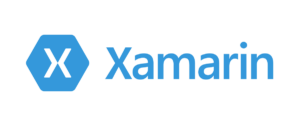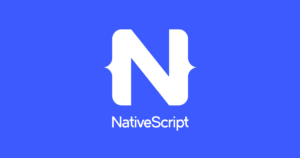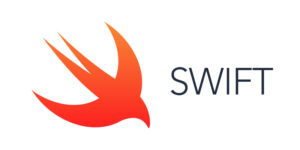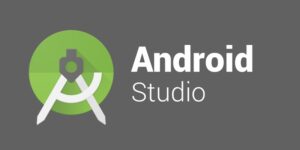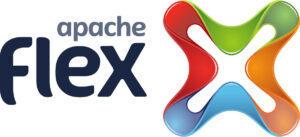This post will explain cordova alternatives. This post will provide an overview of Cordova as well as the top ten cross-platform framework alternatives. This is the mobile device era. That is why most people use their phones for around 80% to 90% of their tasks. It is only possible because those mobile phones have user-friendly operating systems and interfaces. What matters even more is the smartphone application that assists users with all of their tasks.
Top 10 Best Cordova Alternatives In 2024
In this article, you can know about cordova alternatives here are the details below;
We’ve seen a considerable growth in the functionality and level of convenience provided by mobile applications in recent years. It’s all due to technological advancements in the tools used to create these applications.
These tools have not significantly improved the efficiency of the applications for users. Nonetheless, developing great mobile applications has gotten easier and less time intensive for developers.
One of the main reasons for this is that most mobile applications are now created as hybrid web applications that run on a variety of mobile devices and operating systems. This is why the scope of mobile applications has expanded dramatically.
Many technologies have been created to make it easier for developers to create hybrid web applications that run across platforms. However, we will explain what Cordova is and what the top 10 Cordova alternatives are in this article.
What exactly is Cordova?
Since the beginning of mobile application development, developers have struggled to rely on platform-specific APIs. If the developers used platform-specific APIs, they’d have to design separate apps for practically every device that runs a different operating system.
This issue not only took a long time to solve, but it also had a negative impact on the developers’ productivity. Frameworks like as Cordova help to solve this problem. It facilitates developers to create applications that run on a variety of devices with different operating systems.
This is accomplished by converting native API-based mobile applications to hybrid web applications written in the following languages.
- HTML5.\s• CSS3.\s• JavaScript.
When a mobile application is designed as a hybrid app on these platforms, it can easily run on all iOS, Android, and Windows devices using a single code.
Advantages of Using Cordova
The ensuing are some of the benefits of utilising Cordova.
- The platform enables rapid development of hybrid mobile applications, reducing development time significantly.
- You won’t need to learn any platform-specific languages to create apps.
- Cordova add-ons provide a lot of functionality, not the application you create.
The disadvantages of utilising Cordova
- If you need to add a lot of data and functionality to your Cordova app, it may take a little longer.
- You can run into challenges with programme optimization for different systems.
- Cordova does not currently support several essential plugins.
The Top 10 Cordova Alternatives
Even though Cordova is an amazing framework for creating stylish and functional hybrid web and mobile applications, it lacks some functionalities. As a result, some people prefer to switch to alternate alternatives that have all of the features they desire as well as some extras.
In this article, we’ll go through the top ten Cordova alternatives that each developer can employ for their own unique features.
1. Native ReactJS
React Native is a cross-platform framework created by Facebook that allows you to quickly create beautiful and functional mobile apps. It is the best Cordova alternative.
The fundamental reason for this framework is that when developing an application for several operating systems, you either have to be fluent in the local languages or hire someone who is. Also check LiveStation Alternatives
React Native, on the other hand, allows you to write code for one application and use it across several platforms without any issues.
React native’s advantages.
- If you want to design something more focused on the user interface, this will be an excellent foundation for developing wonderful mobile applications.
- This is one of the most widely used and trusted platforms for developing cross-platform apps.
- Application development takes a relatively short amount of time.
- Third-party library support allows you to add more functionality.
The disadvantages of React Native.
- The majority of the functionality will be added via external libraries.
- The number of testing possibilities is limited.
- New developers will find it difficult to learn.
2. Flutter
Flutter is an open-source framework from Google Mobile UI that allows developers to create native apps on both Android and iOS platforms fast and effectively. Despite the fact that it allows us to create native programmes, it still employs a single codebase that compiles native arm code directly.
Flutter is also a fantastic tool because the applications created here have access to the following features.
GPU, Platform API, and Services
Flutter’s Advantages
- Developing applications is a quick process; it’s simple to update things in code and address errors right away; and Flutter offers rapid rendering and comprehensive flexibility.
Flutter’s disadvantages
- The Dart programming language is not as developed as others, and few developers are familiar with it.
- Despite being native, the programmes do not feel completely at home on the operating systems.
- You’ll have a hard time finding any flutter application development recommendations.
3. Xamarin
Xamarin is a.NET framework-based platform that allows developers to create mobile applications for iOS, Android, and Windows. The applications created here are not only visually appealing, but they also operate admirably.
With an underlying platform code, Xamarin controls the communication of shared code between platforms.
The advantages of utilising Xamarin.
- The development cycle is shortened because 90% of the source code for various applications’ capabilities can be shared and reused.
- In terms of performance, the native application and the applications created here are nearly identical.
- The plugin support allows it to work with a variety of hardware, allowing it to function well and be incredibly compatible. Also check Play store alternatives
The disadvantages of utilising Xamarin.
- The application takes a little longer to load than you may imagine, and the interface building process is lengthy.
- Some libraries vary the programme size for different operating systems, making cross-platform usage uncertain.
4. Ionic Framework
Because of its interaction with Angular and React, Ionic Framework allows developers to create high-performing mobile, web, and desktop applications. These applications were developed using HTML, CSS, and JavaScript.
The cross-platform applications developed here are web applications that perform like native operating system programmes.
Advantages of Using the Iconic Framework
- Low development costs; easy maintenance due to cross-platform nature; and quick time to market across platforms.
Ionic Framework’s disadvantages
- Performance is inferior to that of native programmes.
- A plugin-based architecture means that the application’s size will balloon dramatically.
- Debugging can be challenging.
5. Phone Gap
Phone Gap is another platform that develops cross-platform apps using frameworks like HTML, CSS, and JavaScript. These are hybrid web applications that run smoothly on a variety of mobile operating systems.
The advantages of using a phone gap
- All operating systems will have the same appearance for the applications produced here.
- You won’t need to learn any sophisticated native languages because all you’ll need is experience designing online applications.
- The apps created here not only look and feel like native apps, but they also function like native apps.
The disadvantages of utilising a phone gap
- Performance may differ from native.
- If you want to create hardware-intensive apps, this is not the tool for you.
- If you want to create an iOS application, you’ll need a Mac.
6. Native Script
Native Script is a cross-platform mobile development framework for iOS and Android. For application development, it employs the following language. Also check Google AdSense Alternatives
- Angular. • Vue.js. • JavaScript. • True Script.
This framework can provide native access to apps, allowing them to appear and perform better.
Alternatives of Native Script • When compared to other platforms, Native Script is extremely quick.
- The application is compiled to native code, allowing it to run like a native application; • This platform has a vibrant developer community.
Cons of Native Script Use • The documentation should be better.
- While experts will find this tool simple to use, newbies may encounter numerous obstacles.
- There isn’t much help for users of this framework.
7. Swift
If you want to create a very stable and performant application for Apple devices, Swift is the finest platform for you. This is a platform that has been used to create apps for both Apple and Linux devices, therefore we can claim it is a reliable platform with a vibrant community. • Swift’s syntax is relatively basic, making addressing faults and deleting errors quite simple.
- It is simple to comprehend and utilise for new developers.
Cons of Swift • Some operating systems are incompatible with Swift, and some versions are incompatible with each other.
- The community is smaller than some other platforms because it can only be utilised on a limited number of operating systems.
8. Android Studio
Android Studio is the greatest tool for developing native Android applications for mobile devices. This application is the official integrated development environment for developing Android applications, and it includes certain useful capabilities like as real-time resource updates and push code.
Advantages of Android Studio • It was created by Google.
- There is a large developer community here • The debug mode is remarkable
The disadvantages of Android Studio include that it does not function with Apple devices.
- Even if you have an SSD, it takes a long time to get going.
- The computer specifications required to operate this programme are above average.
9. Unity
Unity is a game development tool that is used to create a variety of mobile games. Because most popular mobile games are based on this platform, it has a large community of game developers who use it for their projects. It offers features for using augmented reality and virtual reality, in addition to traditional mobile games.
Pros of Unity • The code for the most amazing games may be produced in the simplest C# language; • Games created with this tool run on practically every platform; • Graphics access is compatible for a wonderful gaming experience.
The disadvantages of oneness
- You must start from scratch and are unable to use templates.
- If you want to edit games with open-world maps and high-quality visuals, expect a lot of latency.
- It is not open source.
10. Apache Flex
Apache Flex is a framework that can be used for much more than just creating mobile apps for iOS and Android. It’s because it’s capable of producing excellent BlackBerry and tablet OS applications.
Apache Flex Advantages • Open-Source
- The user interface is fantastic, and there are no problems utilising it across different browsers.
Cons of Apache Flex • To work smoothly, it requires good hardware.
- It’s hefty.
- Flash Conclusion Dependency
This post compared the top 10 Cordova alternatives. It gave a general review of each framework, as well as the benefits and drawbacks of employing the technology. I hope this info assists you in making an informed selection and selecting the finest equipment for your project’s needs.
FAQ
What exactly is Cordova?
Is an Adobe-owned cross-platform development framework for creating iOS and Android apps.
What are the advantages and disadvantages of Cordova?
Pros – Saves time, is simple for web developers to utilise, and is ideal for prototyping.
Cons – Performance isn’t as good as native, and it’s not totally compatible with all devices.
What are the best Cordova alternatives?
– Android Studio – Phonegap – Nativescript – Unity – Apache Flex – React Native – Flutter – Xamarin – Ionic – Swift – Android Studio – Phonegap – Nativescript – Unity




